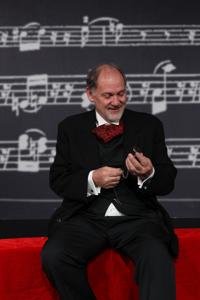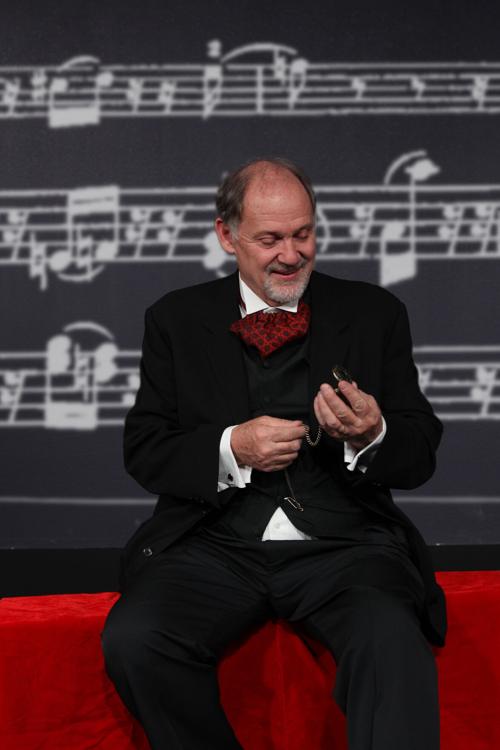Sex, jealous rages and Beethoven.
You’ll find them all in Live Theatre Workshop’s production of “The Kreutzer Sonata,” which Nancy Harris adapted from the Leo Tolstoy novella of the same name.
Of course, the novella was banned in Russia immediately after it was published in 1889, and the U.S. soon followed suit.
Today, the misogyny in the work is far more disturbing than the abundance of sex, but more on that later.
David Alexander Johnston admirably — and solely — holds the stage for 90 minutes as Pozdnyshev, a man whose runaway imagination has convinced him his wife is having an affair with a violinist, an old friend of his.
He is in a train car relaying a story about his playboy days, his marriage, and his attitude toward women. The words, the rumbling of the train and the strains, often light, of music combine to create a compelling, rhythmic flow.
His wife has given him five children, and once the doctors told her no more, she began to blossom, finally taking up the piano she neglected when her husband bought it for her right after they married.
She glowed, she grew. Surely that was not possible unless there was a man involved, right?
In the background is Beethoven’s sonata, a piece played by Pozdnyshev’s wife and his friend. Pozdnyshev has no use for music, but he finds himself strangely consumed by the sonata as they play: “It sucked me in. It spat me out. My temperature soared, my blood chilled, my soul roared, my heart... It seemed as if the whole room might at any moment burst open or swallow us up. It seemed that we might all fall into each other’s arms and do whatever exquisite thing we pleased.”
Not a music fan, his explosive reaction shocked him. As he recognized the power of the music he became even more convinced that his wife and his friend, with music in common, were falling into each other’s arms.
It’s important to put the play’s attitude toward women in context — this was the late 19th century after all. So when Podnyshev says “All women want a mate. Tell them that at your own peril but it’s true. Better to be a corpse than a spinster,” or, women “might catch us in their pretty perfumed traps, make us their creatures for a while, but they’re not equals” you understand it’s the times and a reflection of this soulless, arrogant character. But one kind of wants to scream anyway.
Besides, that’s not the point of the text. It is a detailed journey through jealous rage and an effective argument against marriage.
It isn’t easy holding a stage alone for 90 minutes or so, and Johnston was up for the job. And while it was effective, we wish it could have been more: He told the story but it was hard to believe he lived it. Too, there’s much humor in this tale, but it was buried. A shame, because this story needs some lightheartedness.
Sam Rush’s direction sometimes got too fussy, but not so much that it pulled us away from the story.
It is disturbing to hear such lowly opinions of women, even if they are more than 130 years old. At the same time, this is a play that sings with words and music and it will give you plenty to ponder as you leave the theatre.





